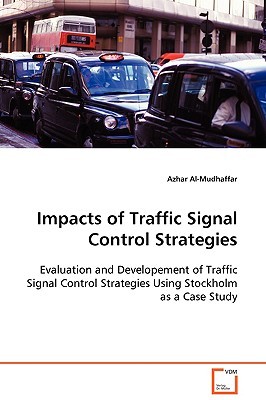
- We will send in 10–14 business days.
- Author: Azhar Al-Mudhaffar
- Publisher: VDM Verlag
- ISBN-10: 3639103246
- ISBN-13: 9783639103243
- Format: 15.2 x 22.9 x 1.2 cm, softcover
- Language: English
- SAVE -10% with code: EXTRA
Reviews
Description
The LHOVRA is the predominant isolated signal control strategy in Sweden. Past-end green was originally incorporated as part of LHOVRA (the "O" function) and was intended to reduce the number of vehicles in the dilemma zone. Coordinated signal control in Sweden is often fixed-time with local vehicle actuated signal timing adjustments and bus priority. The aim was to evaluate the following strategies using Stockholm as a case study: 1. The LHOVRA technique with a focus on the "O" function; 2. Fixed time coordination (FTC); 3. Fixed time coordination with local signal timing adjustment (FTC-LTA); 4. FTC-LTA as above + active bus priority (PRIBUSS); 5. Self-optimizing control (SPOT). Field measurements were used for study of driver behavior and traffic impacts. VISSIM & HUTSIM simulation models calibrated and validated with empirical data were used to study traffic performance and safety impacts of the suggested improvements. TRANSYT was used to produce optimized signal timings. A method to calculate the approach delay was developed based on the observed number of queuing vehicles at the start and end of green.
EXTRA 10 % discount with code: EXTRA
The promotion ends in 19d.03:29:45
The discount code is valid when purchasing from 10 €. Discounts do not stack.
- Author: Azhar Al-Mudhaffar
- Publisher: VDM Verlag
- ISBN-10: 3639103246
- ISBN-13: 9783639103243
- Format: 15.2 x 22.9 x 1.2 cm, softcover
- Language: English English
The LHOVRA is the predominant isolated signal control strategy in Sweden. Past-end green was originally incorporated as part of LHOVRA (the "O" function) and was intended to reduce the number of vehicles in the dilemma zone. Coordinated signal control in Sweden is often fixed-time with local vehicle actuated signal timing adjustments and bus priority. The aim was to evaluate the following strategies using Stockholm as a case study: 1. The LHOVRA technique with a focus on the "O" function; 2. Fixed time coordination (FTC); 3. Fixed time coordination with local signal timing adjustment (FTC-LTA); 4. FTC-LTA as above + active bus priority (PRIBUSS); 5. Self-optimizing control (SPOT). Field measurements were used for study of driver behavior and traffic impacts. VISSIM & HUTSIM simulation models calibrated and validated with empirical data were used to study traffic performance and safety impacts of the suggested improvements. TRANSYT was used to produce optimized signal timings. A method to calculate the approach delay was developed based on the observed number of queuing vehicles at the start and end of green.


Reviews